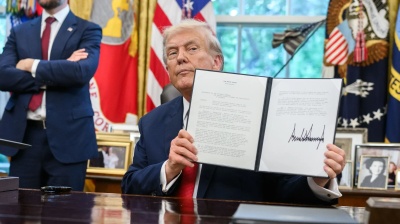Georgian President Salome Zourabichvili has been summoned for questioning by the Prosecutor’s Office following her allegations of electoral fraud during last weekend’s general election
Zourabichvili has publicly condemned the election, labelling it illegitimate and characterising it as a Russian special operation. She has since called on Western nations not to recognise the results and led a significant rally in Tbilisi, amplifying the opposition’s demand for an international investigation into the alleged election fraud.
The Prosecutor’s Office issued a statement explaining that Zourabichvili was summoned for questioning on October 31, reportedly due to her potential possession of evidence related to electoral fraud in the October 26 election.
The president – who was originally backed by the ruling Georgian Dream party but who has become one of its fiercest critics – is accused of making allegations that have damaged the reputation of the election watchdog, the Central Election Commission (CEC), which is widely seen as captured by the ruling party.
The CEC issued a statement saying: “President Zourabichvili, along with representatives from certain political parties, is making unsubstantiated attacks on the CEC, attempting to damage the institution’s reputation through baseless accusations.”
The president has supported opposition claims that the official election results were fraudulent. The official result showed Georgian Dream with 54.23% of the vote, while opposition parties collectively reached only 37.44%, despite most exit polls showing virtually a mirror image of this result.
Observer organisations have said the election was marred by “large-scale” manipulation and called for the annulment of the official results.
The president even called the election a "Russian special operation”, alleging that the Kremlin used sophisticated tools to help the increasingly pro-Russian government distort the vote.
Giorgi Gakharia, a former premier who leads the For Georgia party, has demanded that the CEC transfer its entire voter database to an independent platform for public verification.
“We requested that the complete database of individuals who participated in the election be made accessible on a neutral, objective platform, where each citizen could independently verify critical information,” Gakharia said.
According to his proposal, citizens should be able to confirm whether they participated in the election, the precinct where they voted, and the time of their vote.
Dismissing this request, CEC announced on October 29 that it did not have the resources to handle this kind of probe and it requested that the Prosecutor’s Office take over the investigation into alleged electoral misconduct.
The opposition has little confidence in this manoeuvre because trust in the Prosecutor’s Office is even lower than in the CEC itself, with both seen as captured institutions.
The outgoing Georgian parliament had already launched moves to curb the president’s powers just before the election, when Georgian Dream parliamentary speaker Shalva Papuashvili announced that the ruling party would reinitiate impeachment proceedings against Zourabichvili.
He confirmed that a constitutional proposal to support her impeachment would be submitted to the Constitutional Court before the new parliamentary session. Should the court determine a constitutional violation has occurred, the newly convened parliament would require at least 100 votes to remove Zourabichvili from office.
Former Russian president Dmitry Medvedev urged the parliament to remove Zourabichvili, writing on social platform X: “The puppet president of Georgia refused to accept the election and went against the constitution by calling for a coup. The standard practice in such cases is removal from office and arrest.”
The summoning of Zourabichvili to the Prosecutor's Office highlights her significance as a pole of opposition and as a key advocate for Georgia’s democratic and pro-European aspirations.
Before the election the president announced the "Georgian Charter" initiative, which calls for an interim government and the reversal of Georgian Dream’s recent legislative measures. Signed by Georgia’s four main opposition parties, the Charter proposes urgent EU-aligned reforms, including the rescission of laws such as the "foreign agent law," which has sparked deep concerns over civil liberties.
News

Ghana’s dormant TOR refinery to restart crude operations by October-end
Ghana has long struggled to translate its crude output into refined fuel security. Successive governments have pledged to revive TOR, which has faced years of debt, mismanagement, and technical breakdowns.

No Tomahawks for Ukraine, Trump to meet Putin in Hungary
The US cannot deplete its own stockpile of Tomahawk cruise missiles by supplying them to Ukraine, President Donald Trump said at a press conference on October 16 following a phone conversation with Russian President Vladimir Putin.

Bangladesh seeks death penalty for former Prime Minister Hasina
Bangladesh’s interim administration led by Nobel laureate Muhammad Yunus has requested the country’s criminal tribunal impose the death penalty on former Prime Minister Sheikh Hasina

US ambassador thanks Turkey for role in "coordinated squeeze" that forced Hamas to surrender
Ankara, Cairo and Doha took part in tactics that made Palestinian group accept deal it did not want.




